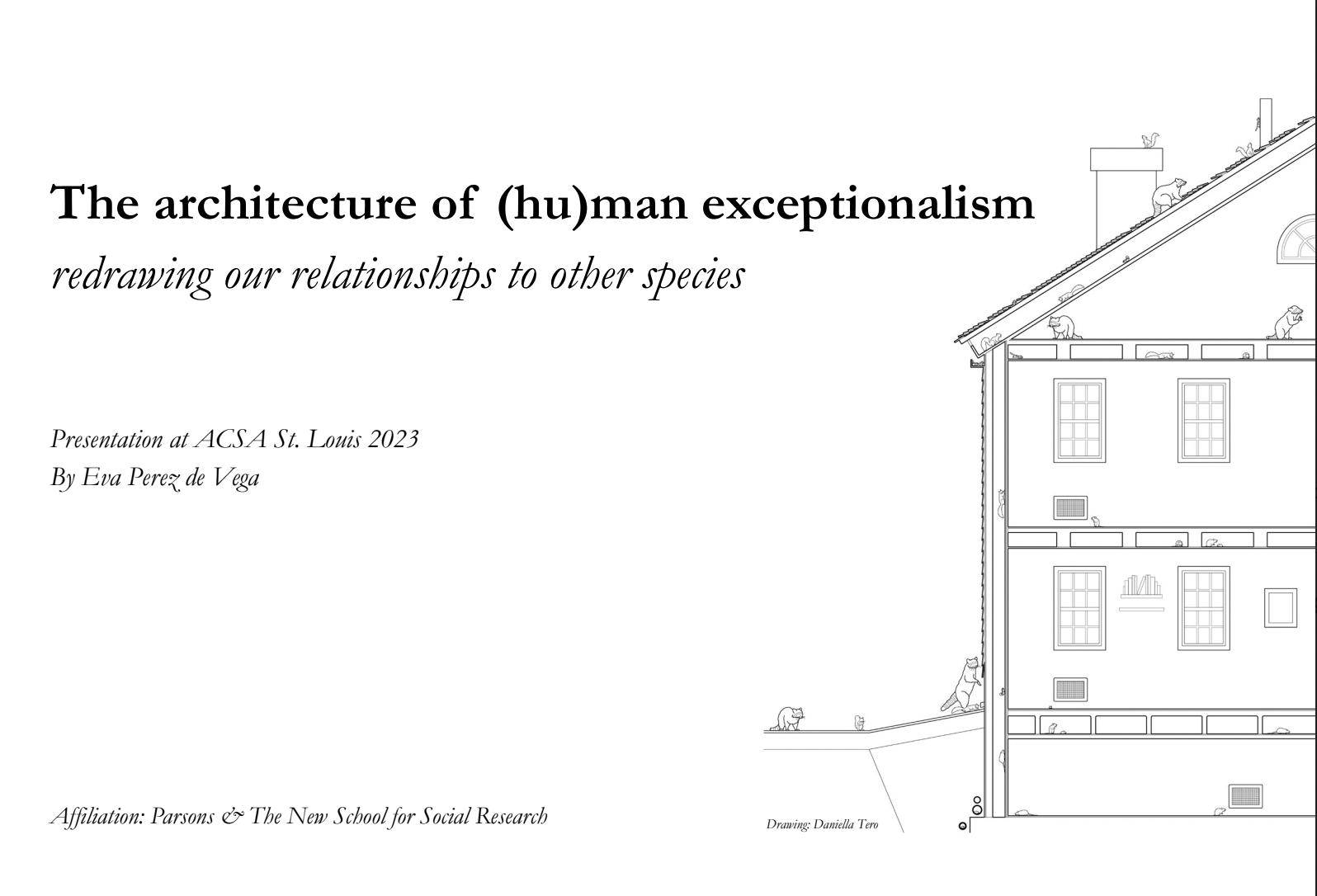Eva Perez de Vega: The architecture of (hu)man exceptionalism redrawing our relationships to other species.

Professor Eva Perez de Vega will be presenting at the ACSA Annual Meeting. Her research and presentation is titled “The architecture of (hu)man exceptionalism. Redrawing our relationships to other species.” Read below for more information on the ACSA Annual Meeting.
For more information and a registration link please click here.
The ACSA Annual Meeting convenes educators, practitioners, and students from around the world to share research and explore the past and future of architecture, design, and allied disciplines. The 111th Annual Meeting will provide multiple opportunities for scholarly exchange in St. Louis, March 30 – April 1, 2023. Our expectation is the ACSA111 conference will be held in-person.
Against the backdrop of growing social and racial inequity, extractive land use practices, and privatized infrastructures, the contemporary debate on the commons is fueling the imagination of other possible worlds. Contemporary commoning efforts build on Indigenous kinship networks, reconstruction-era activism, and community land trusts, among many other global sites and practices, to orchestrate the collective ownership and governance of resources. Commoning redirects power away from states and markets and into communities whose labor and livelihoods have long supported and suffered colonial enclosure and speculative development.
The commons align with many architects’ efforts to build more sustainable, resilient, and equitable communities. At the same time, architects have shaped the same territorial logics of enclosure and growth that have fuel planetary urbanization and exacerbate climate change. These tensions might explain architects’ ambivalence in joining the thriving transdisciplinary and transnational commonsconversation. Amidst these tensions, how can architects, landscape architects, urban designers and planners transition design towards a regenerative and redistributive commons-based economy?
“In Commons,” the theme of the 111th ACSA Annual Conference, invites scholars, practitioners, and thinkers to examine how architectural research, design, and pedagogy can expand the pluriversal nature of cooperativism and commoning. We welcome proposals for special focus sessions, workshops, and tours that imagine and interrogate the tools, protocols, virtual and physical spaces, materiality, aesthetics, forms, legacies, and narratives of the commons.